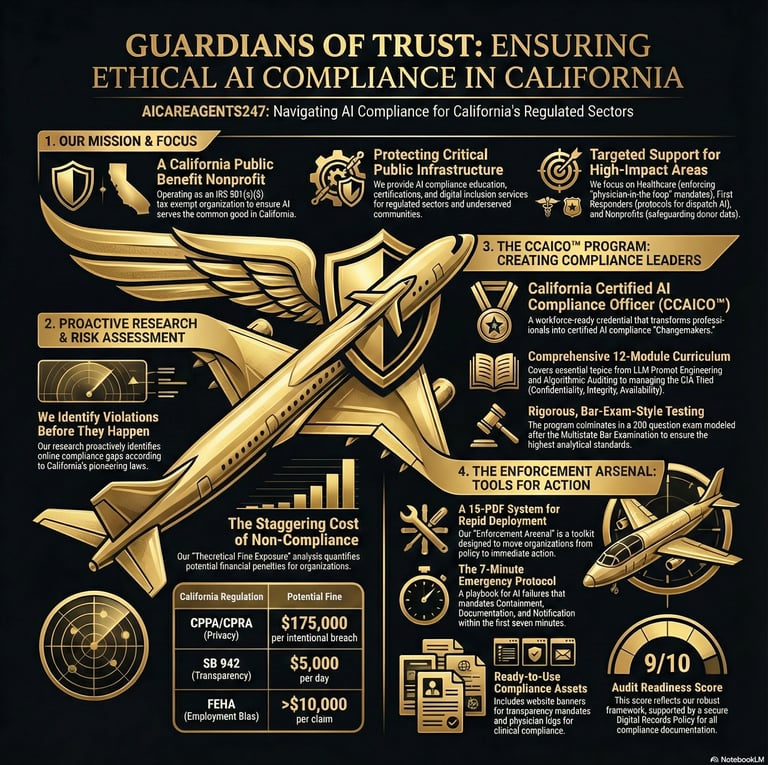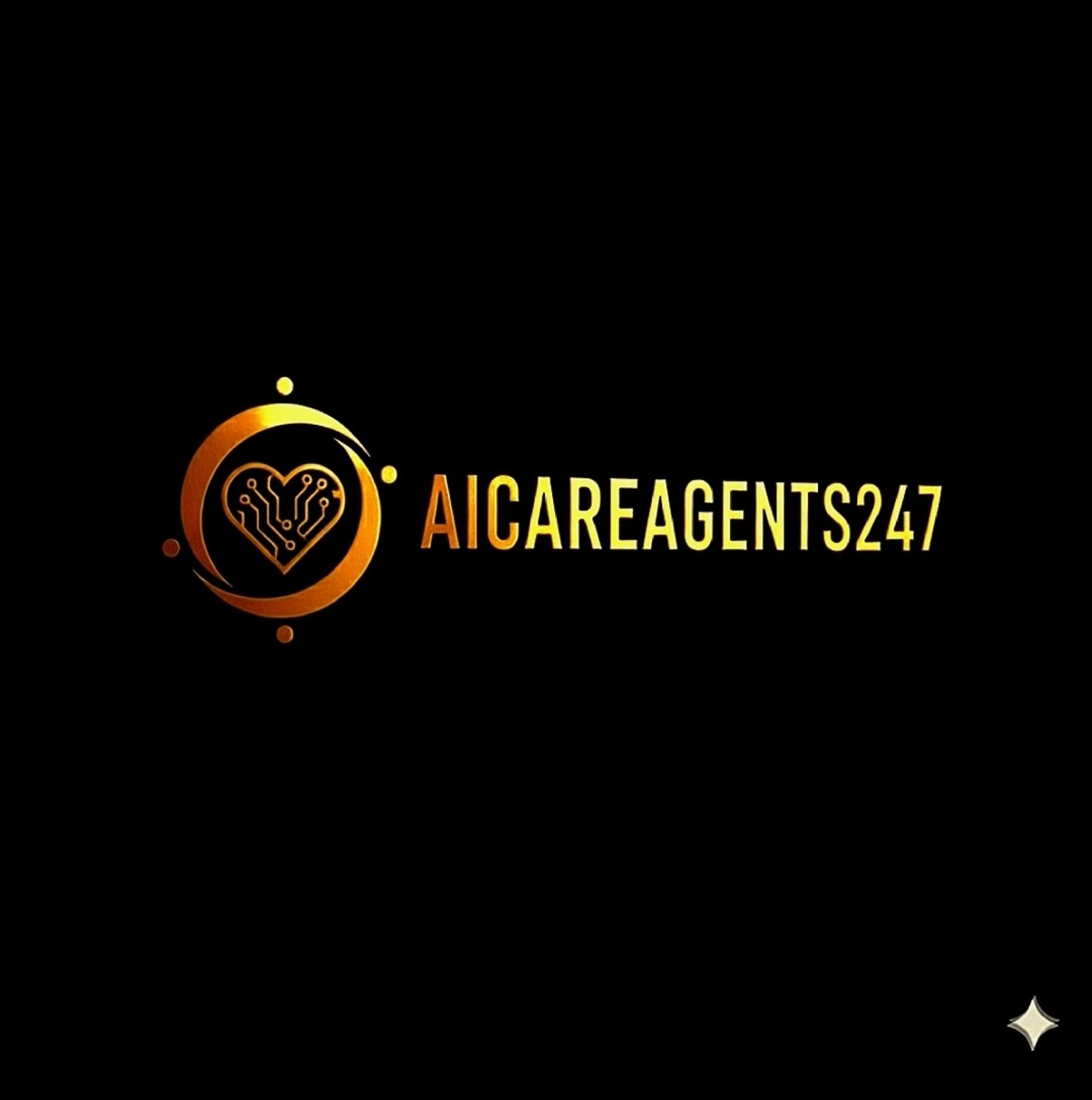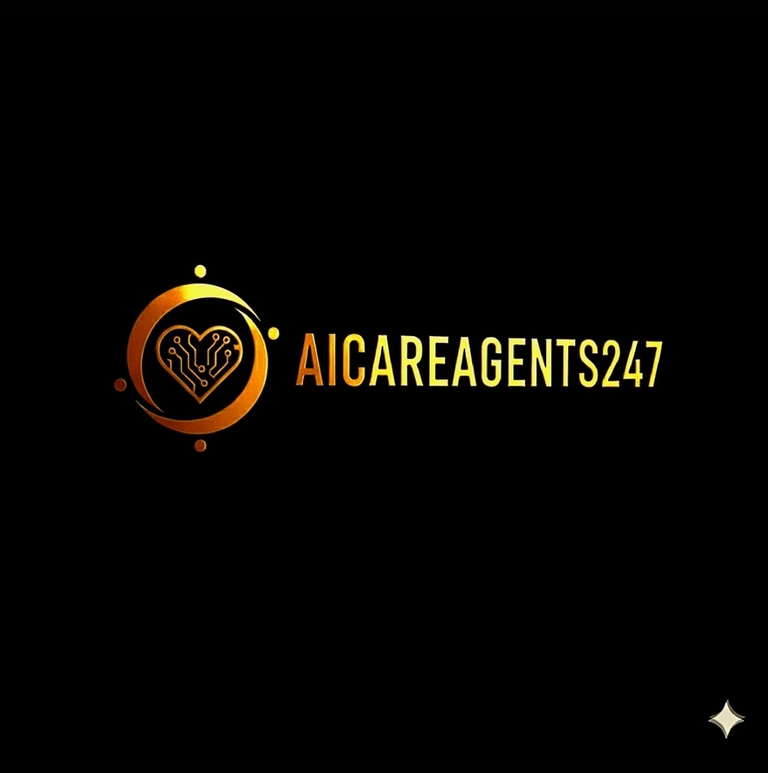AI-GENERATED VIDEO (AB 2013/SB 942): Made with NotebookLM.
Human reviewed by AICAREAGENTS247 Executive Board.
Schedule here securely with Calendly:
CCPA-compliant for CA nonprofits




AI Transparency (AB 2013/SB 942): Gemini and NotebookLM content, human-reviewed.
This site uses AI-generated content (e.g., text/images via NotebookLM); human-reviewed for accuracy, disclosed per CA AI Transparency Act.
Infographic AI-Generated Infographic Chart
(SB 942 Compliant). Questions? Reach out anytime, we're here. Our full AI Policy is available upon request.
To contact AICAREAGENTS247 click above or call the direct number listed on the organization's privacy policy and official profiles, such as (213) 679-5177. Leave a detailed voicemail message without sharing personal information, as the team operates 24/7 to review and respond. Expect a text reply with a California-compliant Calendly link for scheduling a phone call, during which a California-certified AI compliance officer, executive board member, or AI safety/technical educator will provide clarification and orientation.
AICAREAGENTS247 All rights reserved 2026 ©.
